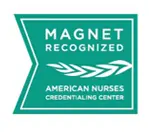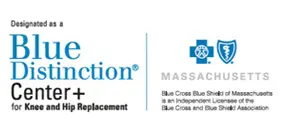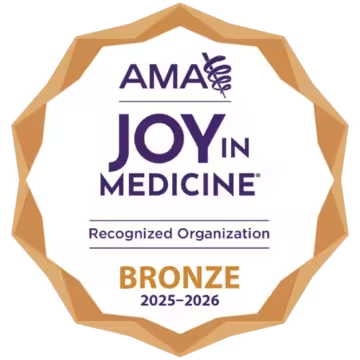Exercise Physiologist - Pulmonary Rehab
- Req. Number: R-20377
-
Address:
55 Fogg RoadWeymouth,MA
- Department: SSH Pulmonary Rehab
- Status: Part time
- Shift: Day
- Schedule: per diem
- Compensation Pay Range: $28.15 - $40.30
Job Description Summary
The Pulmonary Rehab Exercise Physiologist performs pulmonary rehabilitation functions to facilitate patient pulmonary fitness. Participates in process of assisting the patient with Pulmonary risk factor reduction and long term lifestyle changes.
Job Description
ESSENTIAL FUNCTIONS
Patient Care/Evaluation:
1. Selects appropriate evaluation tools consistent with patient’s history, diagnosis, and medical status
a. Evaluation techniques are performed safely and accurately
b. Problems identified reflect an accurate assessment of the patient’s status
c. Short and long term goals are realistic, measurable and address functional needs
d. Goals are identified in collaboration with the patient and/or family
e. Appropriate plan of care including rehab potential, estimated length of stay, treatment frequency and duration.
f. Identifies appropriate treatment interventions to achieve goals.
2. Conducts exercise therapist assessment and documents findings on multidisciplinary assessment form.
3. Identifies any orthopedic, neurological or medical problems, which may interfere with patient's successful completion of the program and notes any of these problems in initial patient admission assessment.
4. Conducts pre-program patient measurements within first week of the program
5. Plans to accommodate special limitations appearing in patient admission assessment.
6. Reviews patient's goal for exercise within the first week of program and documents exercise goals in initial evaluation.
7. Calculates patient's target heart rate before first exercise session and documents on patient's exercise record
8. Participates in educational activities outside department (nursing, physicians) regarding individual patient needs.
9. Demonstrates behaviors supportive of departmental standards for productivity with occasional variance due to patient volumes.
10. Maintains communication with the referring physician or primary care physician regarding patient’s progress
Treatment:
1. Demonstrates in-depth knowledge about equipment/materials/ utilized in patient care
2. Selects therapeutic techniques that reflect integration of therapists clinical knowledge and theory
3. Performs therapeutic techniques that are consistent with the problems and medical standards in a safe manner
4. Develop and provide treatment plans for complex patients with increased medical considerations such as Renal Dialysis, Stroke , Diabetic patients with Insulin Pumps, patients with high oxygen requirements
4. Manage and create safe environment for assigned patient groups of up to 12 patients per group
5. Collaborates with interdisciplinary team when appropriate (participates in rounds/ team meetings/ consults with team members) and adjusts treatment appropriately
6. Takes advantage of learning opportunities for professional development including in-services, conferences or courses.
7. Modifies/adapts activities/length of treatment in response to patient’s status in collaboration with involved team members.
8. Provides patient/family education
9. Presents group education classes related on principles of exercise and documents entry on Pt/Family Education Record. Conducts monthly Pulmonary Support Groups for patients as well as the community.
10. Explains principles of exercise prescription, safety guidelines and overview of program at first exercise session and documents teaching within first week of program.
11. Provides patient support with behavior modification and risk reduction plan
12. Develops a safe and effective exercise prescription for the patient utilizing appropriate mode, intensity, duration, and frequency of exercise.
13. Instructs patient to monitor heart rate and perceived exertion during exercise and documents in patient record.
14. Advances patient's exercise prescription weekly, based on target heart rate, patient's perceived exertion and patient's medical condition.
15. Takes blood pressure and monitors heart rate, oxygen saturation and RPE based on the BORG Scale.
Documentation:
1. Documents patient program and progress
2. Maintains up-to-date evaluations, individualized treatment plans (ITP) and discharge reports
3. Updates all exercise prescriptions for assigned patients in EPIC
4. Completes patient care information on a daily basis
5. Is responsible to independently write clear, concise, relevant and inclusive documentation that facilitates communication of the patient’s status and ongoing needs
6. Therapist adheres to all procedures and documentation standards
7. Therapist takes responsibility to provide coverage information on all patients for whom they have primary responsibility when absent
8. Requests change for physician’s orders as needed
9. Accurately receives and documents department order from physician as appropriate.
10. Documents patient education documentation completely per department and JCAHO standards
11. Documents entry for orientation session on Patient/Family Education Record.
12. Follow–through for plans are acknowledged in patient progress notes on a weekly basis.
13. Reviews orientation equipment safety checklist with patient during first week and documents review.
14. Documents patient progress with increasing activity tolerance and advances exercise prescriptions based on patient’s oxygen saturations and medical condition
15. Documentation will include home exercise program review at least once every week.
16. Documents exercise prescriptions on the patient exercise record considering target heart rate, oxygen saturations and patient’s perceived exertion utilizing the BORG scale.
17. Documents treatment and progress in patient's chart with each session.
18. Documents all related patient outcome data in the Pulmonary Shared Drive pre- and post-program
Discharge
1. Demonstrates timely discharge from treatment with appropriate documentation
Billing
1. Enters daily charges in a timely and accurate manner
Communication:
1. Communicates effectively with staff, peers, colleagues, patients, and family members
Educational Activities:
1. Plans and actively participates in department projects/events/activities
2. Serves as ambassador for department to visitors (tours/observation of patient care)
3. Assists with continuous Quality Improvement and Lean activities, as directed
4. Evaluate Patient Outcome Data as part of process improvement initiatives
5. Takes responsibility for continuing professional development education as well as the required competencies for AACVPR Program Certification
6. Actively promotes profession to referring providers, frontline staff, patients and families
7. Pursue knowledge and skills needed to become CPRP (Certified Pulmonary Rehabilitation Professional) through the AACVPR (American Association of Cardiovascular and Pulmonary Rehabilitation) preferred.
Non-Essential Functions:
- Demonstrates willingness to identify and/or assume activities relative to the developmental needs of the department and hospital
- Performs other duties as assigned
JOB REQUIREMENTS
Minimum Education
Baccalaureate or higher degree in physical therapy, exercise science, or equivalent required.
Masters degree in exercise science or exercise physiology or equivalent preferred.
Minimum Work Experience - Preferred
Experience preferred with working with Pulmonary population with multiple co-morbidities.
Required License/Certification
BLS - Basic Life Support
Required additional Knowledge and Abilities
- Knowledge and experience in techniques of Pumlonary Rehabilitation.
- Knowledge in exercise physiology, exercise testing, exercise prescription, group leadership, and cardiac monitoring techniques (including both in-person as well as monitoring techniques for in-home virtual cardiac rehab settings).
- Must have excellent interpersonal skills and enjoy working with groups of patients and be a part of a multidisciplinary team including cardiac nurses, registered dietitian and referring cardiologists
- Maintain a professional and appropriate manner of conversation
- Maintain composure during stressful situations
- Able to complete clinical and non-clinical tasks as well as assigned activities according to policies, practice guidelines and assigned deadlines
- Utilizes critical thinking and problem solving in day to day operations as well as in emergent situations.
- Communicates appropriately and effectively following chain of command.
- Demonstrates dependability and flexibility in meeting scheduling needs of the department.






